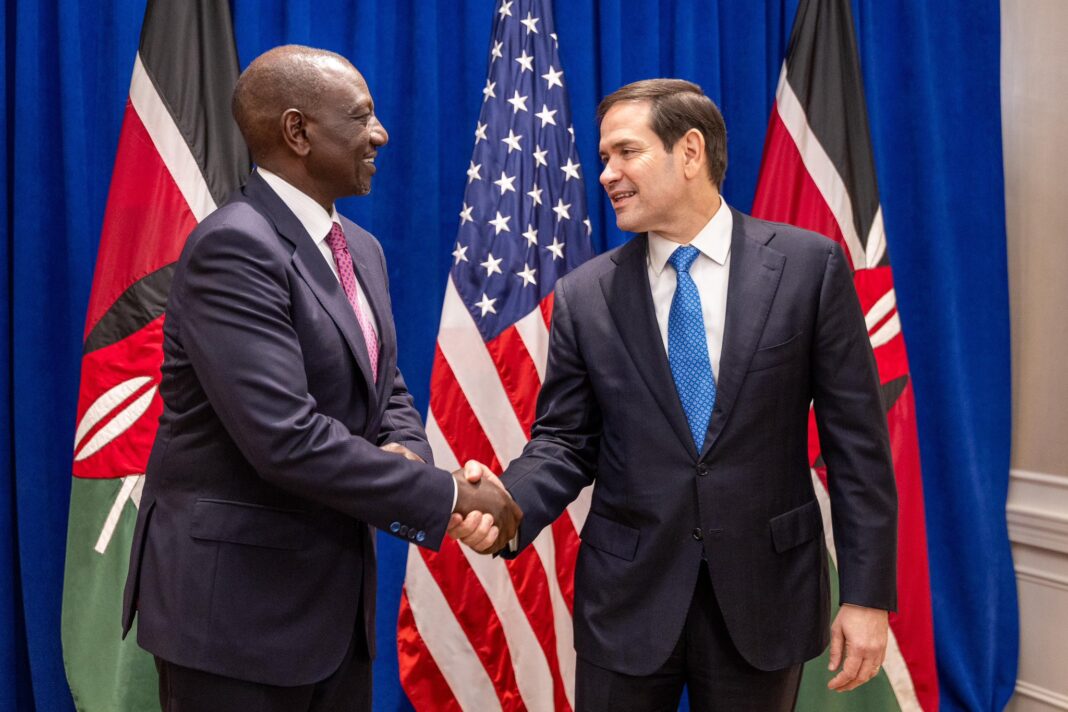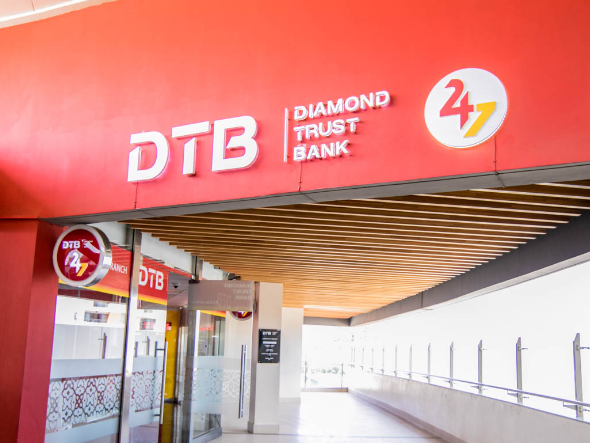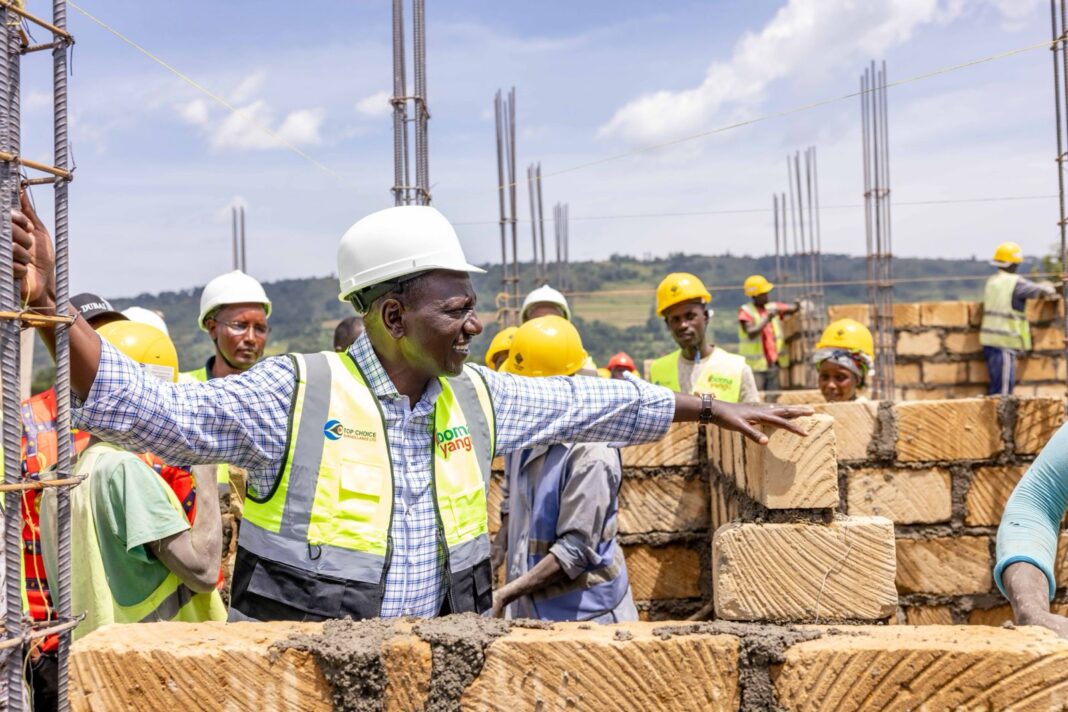President William Ruto’s visit to New York turned political and strategic within hours. After sharply lecturing world leaders at the UN General Assembly, he went into closed-door talks with U.S. Secretary of State Marco Rubio.
The Wednesday meeting centered on Haiti’s worsening crisis and the future of Kenya-U.S. trade. Both leaders called for urgent UN action to crush gangs that have crippled Haiti, while also pushing for deeper investment partnerships between Washington and Nairobi. The talks exposed shifting alliances and growing frustrations over global leadership.
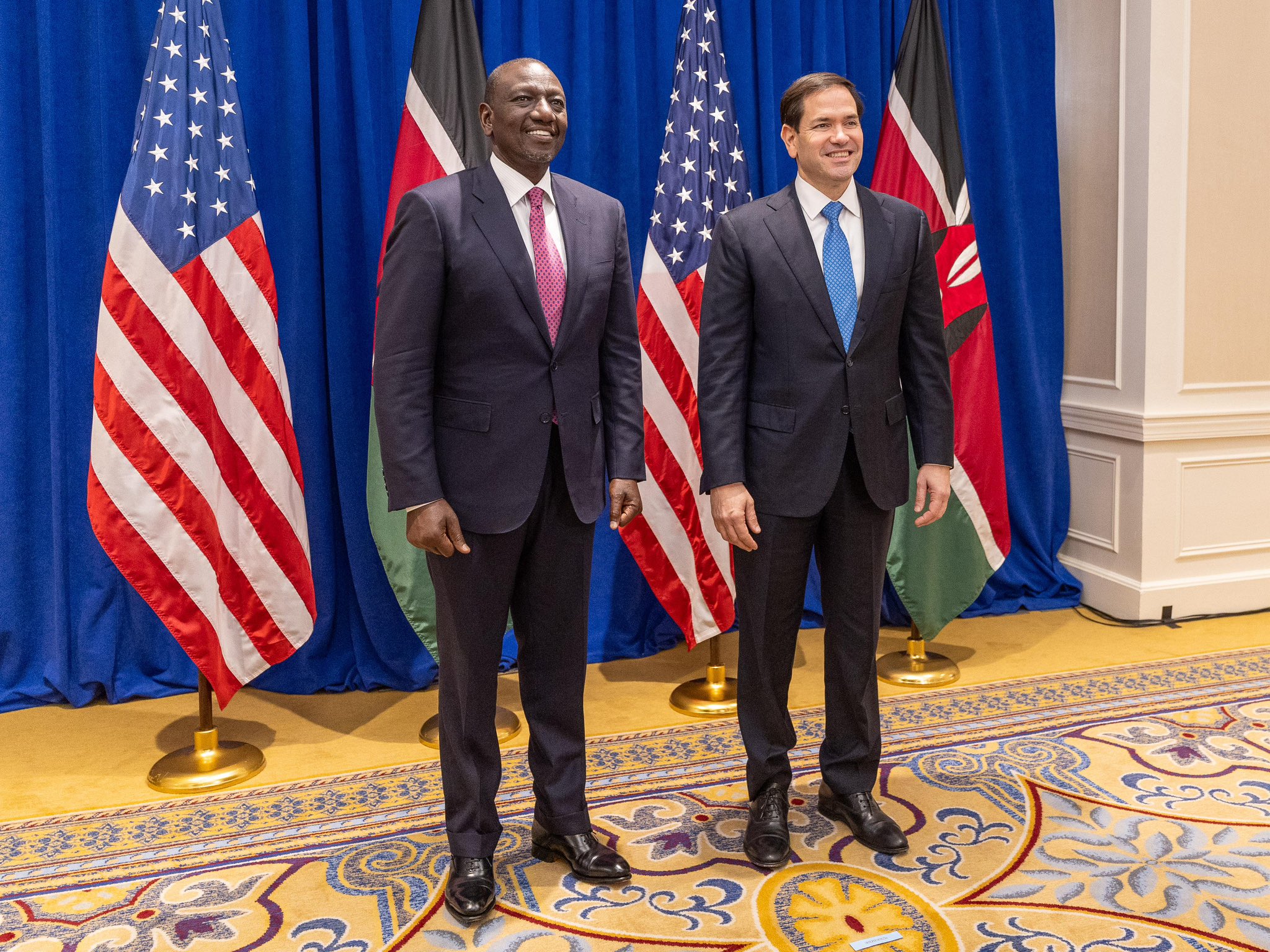
Ruto Meets Marco Rubio in High-Stakes Talks on Haiti
Kenya’s President William Ruto and Rubio met on the sidelines of the UNGA. The talks highlighted Haiti’s collapse, where violent gangs continue to overrun towns, markets, and ports.
The two leaders demanded urgent UN action to establish a strong Gang Suppression Force. They also pressed for a new UN Support Office for Haiti to strengthen logistics and sustain security operations.
“Secretary Rubio lauded Kenya’s brave contributions to Haiti’s peace and security,” a U.S. statement read. “Both emphasised the need for immediate action to restore stability.”
The timing of the meeting was telling. Days earlier, Ruto had openly criticised the international community for abandoning Kenya’s mission in Haiti. He said Kenyan troops had been left with second-hand vehicles and thin budgets.
The frustrations showed that Nairobi, once eager to lead the Multinational Security Support mission, is now grappling with growing doubts. Kenya’s plan to expand bases stalled, giving gangs room to reclaim lost ground.
Meanwhile, Washington is pushing to expand the foreign force to 5,000 officers. There is also talk of shifting command away from Kenya, a move that could weaken Ruto’s leadership role in Haiti.
Haiti Mission Faces Funding and Logistical Collapse
Ruto told world leaders that Kenya’s deployment in Haiti is on the brink of collapse. He revealed that 12 new forward operating bases could not be established due to poor logistical support.
This failure allowed gangs to regroup and seize territories once held by Kenyan and allied forces. Violence in Port-au-Prince has eased somewhat, but the wider nation remains under gang control.
With Kenya’s mandate in Haiti due to expire in less than two weeks, the pressure on Ruto is immense. Critics argue that without stronger U.S. and UN support, Kenya risks a military and diplomatic embarrassment.
The irony is clear: Kenya stepped up when others backed down, yet it now finds itself overstretched, underfunded, and politically exposed.
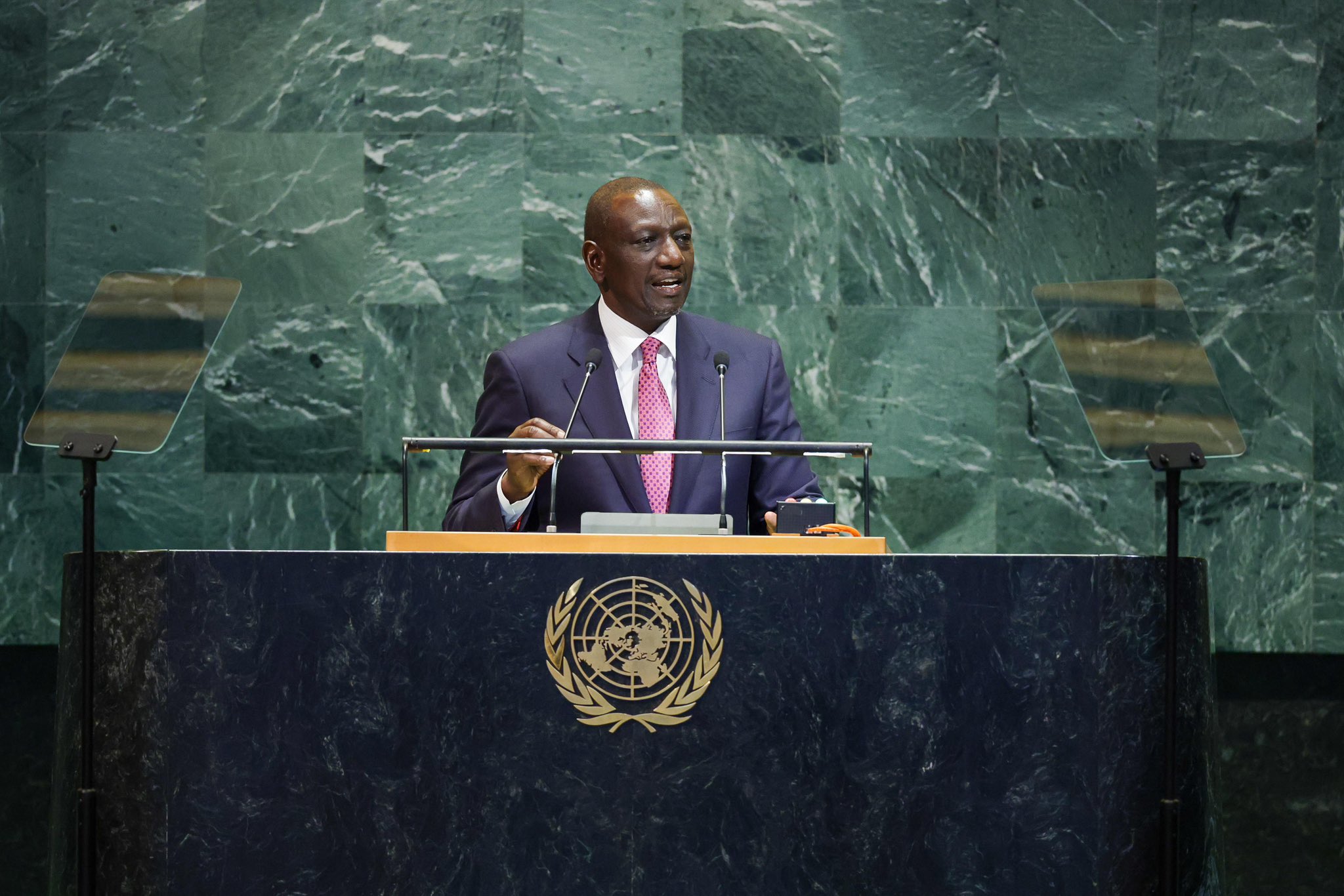
Ruto’s Trade Push and Harsh Words for Global Leaders
Beyond Haiti, the talks with Rubio also touched on economic cooperation. Kenya is seeking more U.S. investments in technology, energy, and manufacturing. Ruto framed trade as a critical path to stability, linking economic growth with stronger global security.
But his sharp tone at the UNGA hours earlier still echoed. In his speech, Ruto accused global leaders of sidelining Africa in decision-making. He warned that the continent would no longer accept being treated as a silent observer.
He took aim at the UN Security Council, calling it outdated and unjust. “We cannot continue with a governance system that locks Africa out of decisions that affect Africa,” he declared.
The message was blunt. Ruto positioned himself as Africa’s voice of defiance, demanding reform and accountability from global powers.
What Ruto Meets Marco Rubio Means for Kenya and Global Politics
The meeting between Ruto and Rubio exposed deep contradictions. On one hand, Kenya is desperate for U.S. support in Haiti. On the other, Ruto openly criticises the same powers for failing Africa.
This balancing act is risky. If Washington sidelines Kenya in Haiti, Ruto may return home weakened. Yet if he secures more funding and logistical aid, he could emerge as Africa’s boldest negotiator on the global stage.
The Haiti crisis remains unresolved, but Ruto’s diplomacy shows he is ready to take on the big powers—sometimes with confrontation, other times with cooperation.
?
